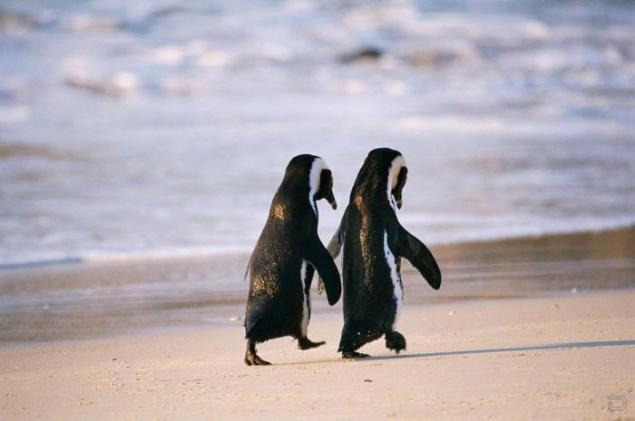We can all learn a lesson in relationships from these loving animal couples.
Macaroni penguin
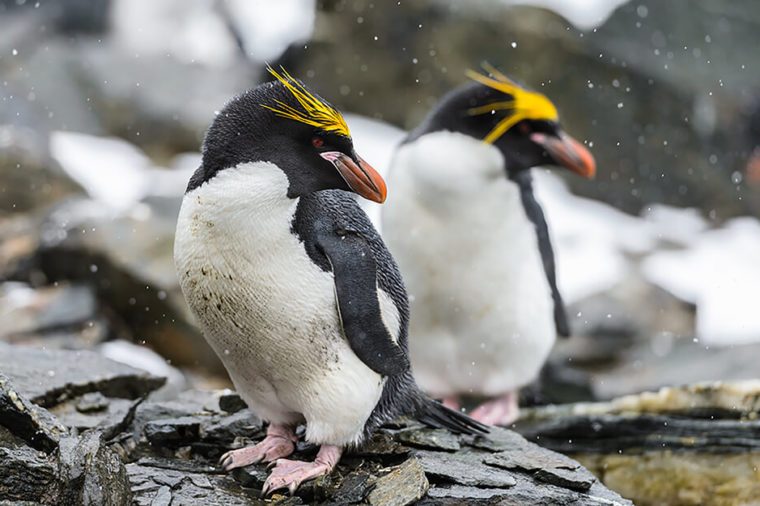
Anton Ivanov/Shutterstock
More than 90 percent of birds are monogamous, but none of them show affection quite like macaroni penguins. These adorable couples dance when they see each other, called “an ecstatic display.” They puff up their chests, swing their heads side to side, and make a gurgling-like sound. Once their baby is born, the father looks after the chick while the mother hunts for food.
Sandhill crane

Nagel Photography/Shutterstock
Humans have love songs and poetry, but sandhill cranes have “unison calling” to profess their bond to the world. Female cranes squawk twice and the male cranes respond with a single squawk. We doubt it would have the same effect on humans.
Seahorse
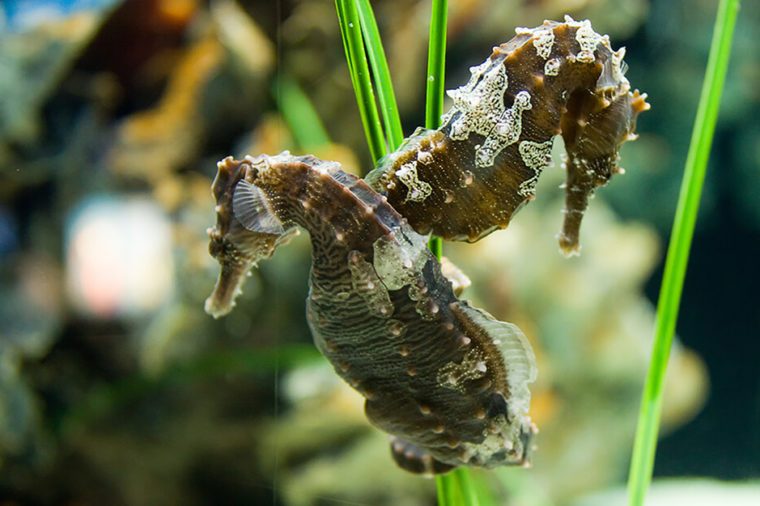
Steven L. Gordon/Shutterstock
Long before male seahorses carry their babies in the pouch on their stomachs, they flirt with potential mates by intertwining tails and dancing around each other. Female seahorses, on the other hand, can get jealous and compete with each other for a certain male.
Gray wolf

Nagel Photography/Shutterstock
An alpha male and his female partner are basically a power couple; the social hierarchy of all other gray wolves in the pack depends on them. The couple breeds once a year.
Barn owl

iceeyes198369/Shutterstock
Barn owls also have their own language of love. Male owls “flirt” with potential mates by giving them dead mice and screeching, and females who are interested respond by croaking.
Shingleback skink
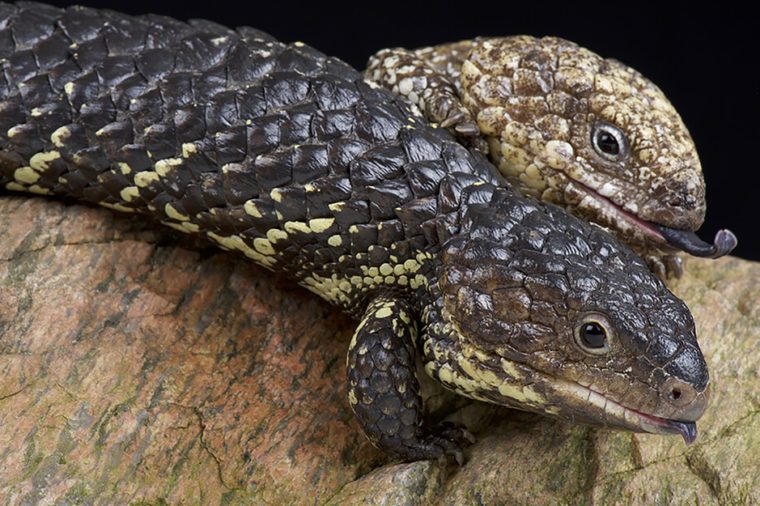
reptiles4all/Shutterstock
The shingleback skink is a type of lizard native to Australia that returns to the same partner each mating season. The males woo the females by caressing and licking them, but the romantic chase pays off; their partnership could last more than 20 years. Couples even walk close together, with the male following slightly behind his mate.
Bald eagle

iceeyes198369/shutterstock
Just like the wolves, eagles return to their same partners each mating season. The male eagles also help keep the eggs warm and feed the little ones after they’re born.
Gibbon
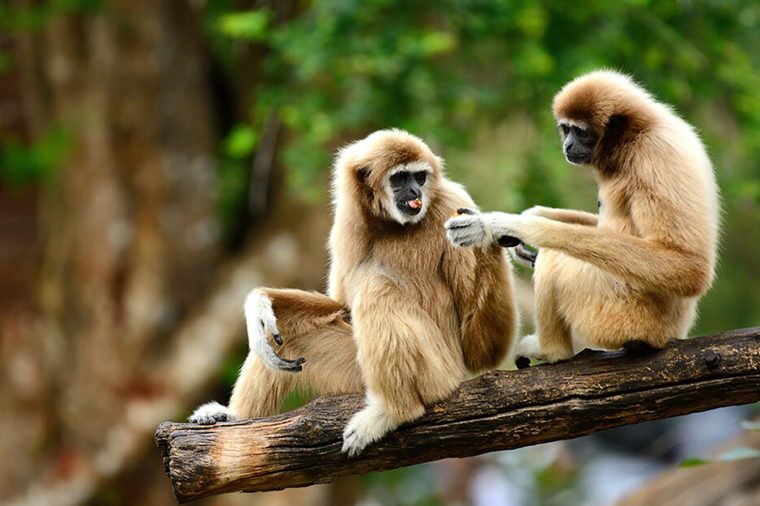
cowboy54/shutterstock
These small apes have relationships that can mirror those of humans, in that couples do cheat, breakup, and even “remarry.” For the primate couples that do stay together, they groom each other and equally help raise their children.
Black vulture
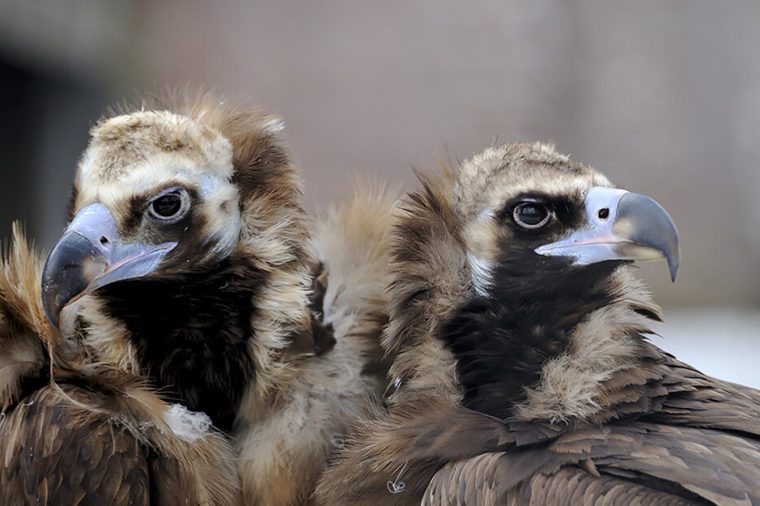
Sergey Skleznev/Shutterstock
Vultures have a rather grim reputation, but at least they can be creepy with a loving mate. During courtship, male vultures circle the females with extended necks, and then chase and dive toward them. Couples stay together all year round, and once eggs join their family, they take turns incubating them for 24-hour shifts.
Beavers

Michal Ninger/Shutterstock
Not much is known about how beavers find their mates, but once they do, they stick with that partner for life. A genetic study by Charles University in Prague even found that beavers stay faithful to their mates. Granted, this only applies to European beavers. North American beavers do partner up, but they also, as we humans would say, “see other people.”
Swans
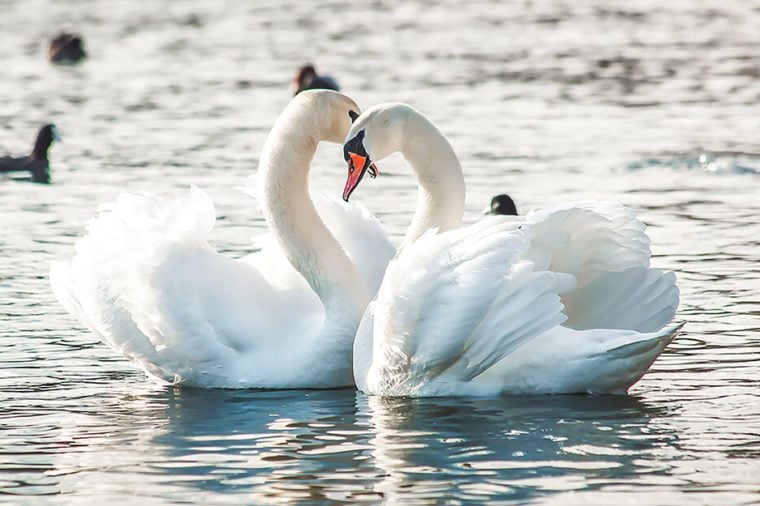
InnaVar/Shutterstock
There’s a reason why swans have become a symbol of love. When they court, they curve their necks toward each other in a heart shape, lift their wings, and bow. However, the grunting and hissing noises they make in the process are less romantic. But that doesn’t stop them from spending the rest of their lives together.
Source: RD
5,761 total views, 2 views today

